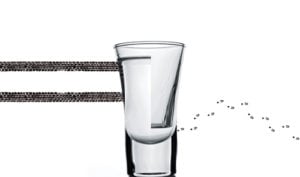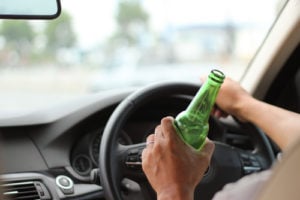TV and Hollywood have an amazing ability to create dramatically fantastical worlds, from what is otherwise a far more mundane side of life, and the process of criminal investigation by law enforcement on TV is one of these categories. Thanks to the success of series shows like C.S.I., the general public now has a collective impression that, not only can investigators solve cases from microscopic pieces of evidence at the scene of an alleged crime, they can also tell entire stories via computer generation based on that same evidence.
Not surprisingly, people who have never been in a criminal trial proceeding, come in with all sorts of expectations, as well as thresholds that law enforcement must meet to make a good case.
However, what is realistically needed to actually prove a case to a conviction is far from the technical science imagined on TV programs. Instead, a good amount of the evidence used is based on witness statements, written reports by the officers involved, photographs, and the big variable bucket of circumstantial evidence.
For a legal consultation, call 713-225-1900
This last issue is the one that people should really be worried about, because it falls on the assumption that the evidence connecting someone to a general location, time, or place, is enough to support a conviction of guilt. In fact, no one has to actually prove that the person committed the act per se; placement is enough. It’s a far cry from the world of TV, with it’s fanciful stories of computer-generated explanations, and a very different idea than what the average person thinks is “proof beyond a doubt.”
For a party accused of driving while intoxicated or a DUI, for example, a typical case will more than likely be based on an officer’s report, a toxicology report from the defendant’s blood sample or Breathalyzer test once arrested, and witness statements. Two out of three of those evidence categories are extremely subjective, and influenced by the officer or witnesses’ opinion on the matter, no matter how fact-based the statement.
In addition, unless the defendant can create a strong enough counter-argument with his own witnesses or solid scientific evidence, he’s likely to get convicted by a jury, mostly because of the general social sentiment against drunk driving and related accidents.

Click to contact our Houston lawyer today
The expertise of a practiced trial attorney, skilled in arguing DUI defense cases, is critical. Not only for basic defense, but for the education and experience in knowing how to counter the low-level basis of evidence typically used by the prosecution in such cases, as well. Silence is definitely not the tactic to fall back on in these situations.
Complete a Case Evaluation form now
A good defense will introduce far more concrete evidence than a few witness statements, solidly bringing into doubt the prosecution’s version of what occurred. Most importantly though, defendants have to get it clear as soon as possible, there is no CSI threshold the state has to meet in a DUI trial; that’s make-believe on TV. People have been, and often are, convicted on a lot less every day, absent a good defense.
Related Resources:
- Keep Honest Kids Honest: Cell Phone Safety for Kids
- Legislative Mistake Reduces Penalties for Some Drug Offenses
- Motorist Arrested in Grand Prairie After Fatally Running Over Man
- New Apple iOS Feature Can Block Government Phone Dumps (if it works)
- Deficiencies in Jail Monitoring & Polices Highlighted by Inmate Suicide
- You Have The Right to Google a lawyer
Call or text 713-225-1900 or complete a Case Evaluation form


